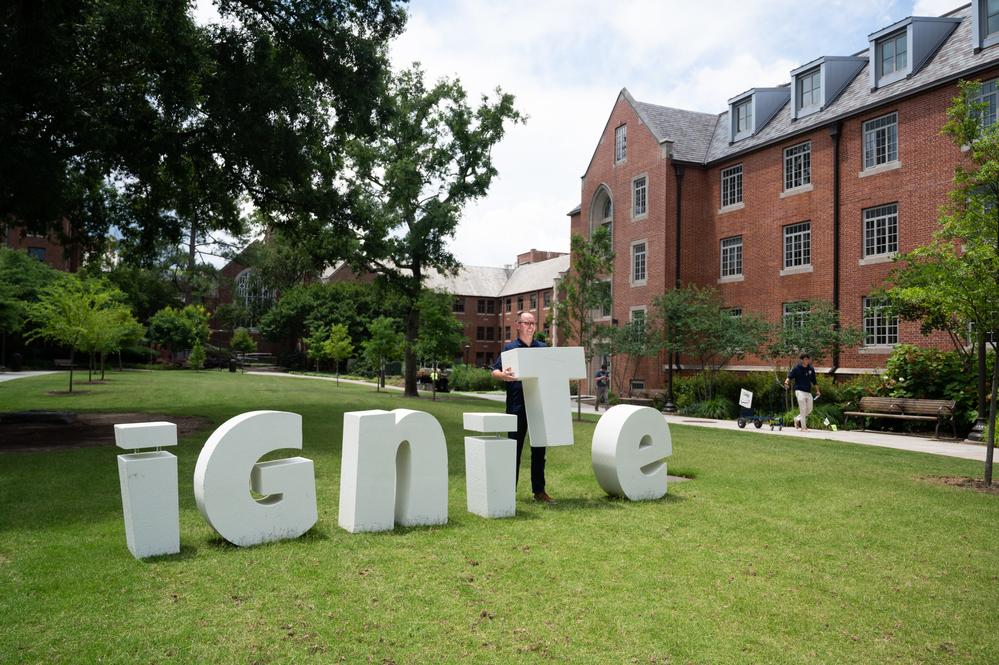
Effective January 1, 2024, the iGniTe program will be returning to OUE, reporting within the Office of Experiential and Engaged Learning (E2L), aligning with our other transition and high impact learning programs including GT 1000 & 2000. As part of this transition, Erik Johnson, Assistant Director for iGniTe, will be joining OUE, where he will report directly to Dr. Chris Reaves, Assistant Vice Provost for Undergraduate Education and Executive Director of E2L.
iGniTe is a summer launch program open to first-year students who matriculate in the summer semester of their first year. iGniTe students select one of seven tracks to participate in throughout the summer and take 6-7 credits of core, major, or elective courses, including a 1-credit GT 1000 course in 5 weeks of instructional time. The iGniTe program provides participating students with the opportunity to get a head start on their college career by taking essential classes, attending events, and building relationships with their peers.
“The iGniTe student interns and I are excited about the opportunity to re-join the OUE family, and work within the E2L team,” said Johnson. “We have the opportunity in Ignite to collaborate with so many wonderful people. Many of you receiving this email are included as some of our closest partners. I look forward to continuing to build on the great foundation iGniTe has, and being a part of a team that provides exceptional experiences for our students at Tech.”
In 2021, the Summer and Special Sessions unit (which includes the iGniTe summer first-year program) was reassigned from the Office of Undergraduate Education to Enrollment Management following a reorganization of the Provost’s Office. Based on current needs and alignment with GT’s strategic plan, the iGniTe program will return to the Office of Undergraduate Education, which will allow the integration of iGniTe with other transformative learning experiences and high impact practices offered by OUE and E2L, including community-based learning, living learning communities, transition seminars, student innovation, undergraduate research, and work-based learning.
